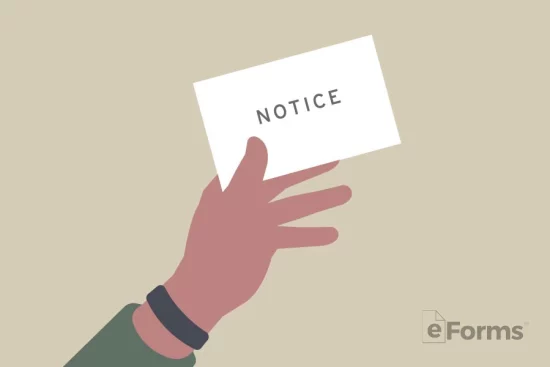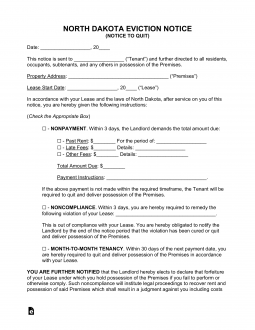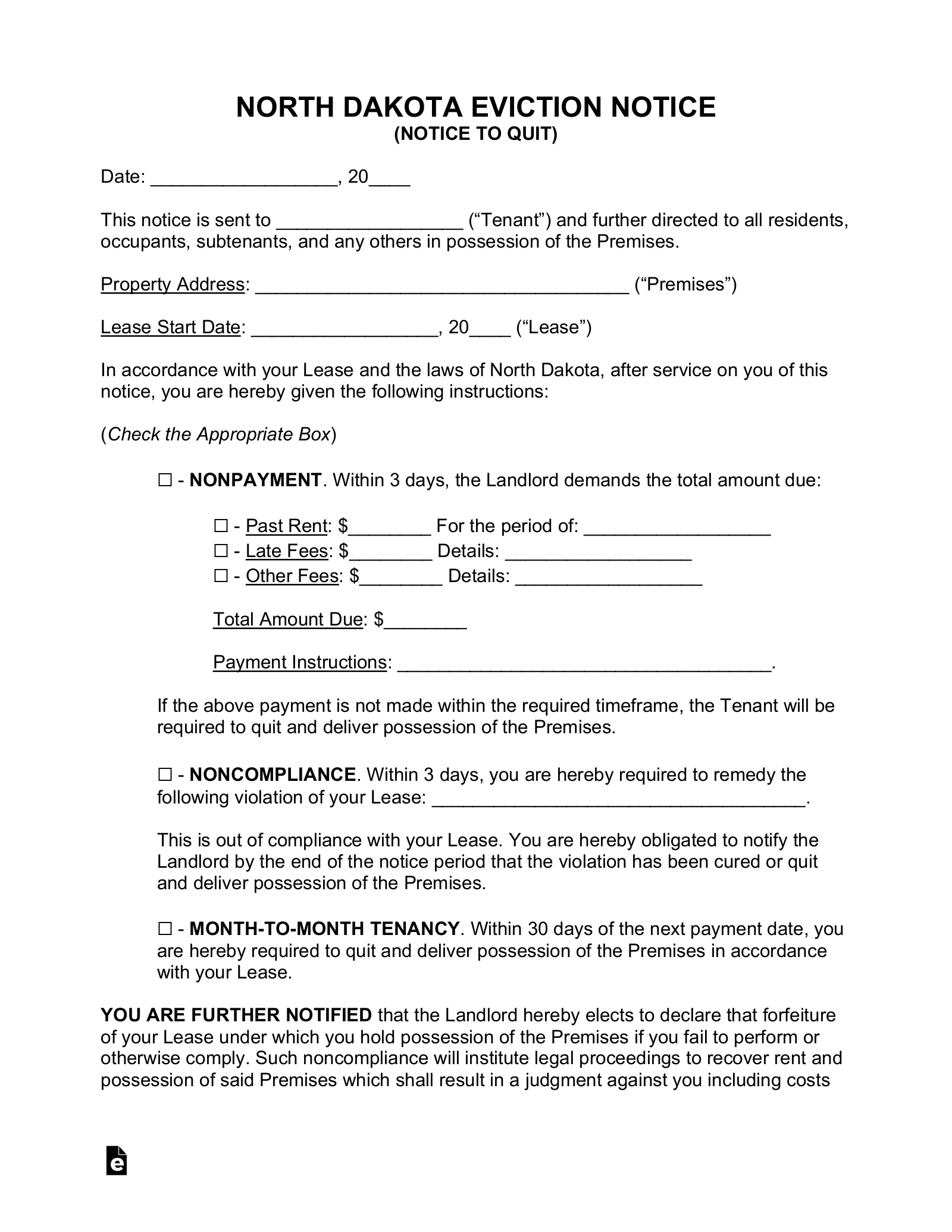Updated March 06, 2024
A North Dakota eviction notice is a document used when a landlord seeks to evict a tenant who has failed to abide by the terms of their lease agreement. No matter the nature of the breach, the landlord must provide at least three days’ notice to the tenant to rectify the breach. If the tenant fails to do so, the landlord may file a summons and complaint in the local district court.
By Type (2)
 3-Day Notice to Quit (Non-Payment of Rent & Non-Compliance) – Used to notify a tenant of the landlord’s intention to file an eviction for non-payment of rent or any type of non-compliance. 3-Day Notice to Quit (Non-Payment of Rent & Non-Compliance) – Used to notify a tenant of the landlord’s intention to file an eviction for non-payment of rent or any type of non-compliance.
Download: PDF, MS Word, OpenDocument |
 30-Day Notice to Quit (Month-to-Month Tenancy) -Used by either the landlord or tenant to quit a tenancy at will. Although the tenant may only have to provide 25 days’ notice while the landlord must provide 30 days. 30-Day Notice to Quit (Month-to-Month Tenancy) -Used by either the landlord or tenant to quit a tenancy at will. Although the tenant may only have to provide 25 days’ notice while the landlord must provide 30 days.
Download: PDF, MS Word, OpenDocument |
Table of Contents |
Court Forms
All Eviction Forms and Instructions – This document contains all of the necessary forms and instructions that a landlord will need to begin an eviction action against a tenant.
Complaint for Eviction – States the reason for the eviction and is filed by the landlord with the local court to begin an eviction case.
Summons – This document must be filed in court and served on the tenant, along with the Complaint. It relays the date of trial and offers the tenant the opportunity to offer their side of the story.
Findings of Fact – Before the trial takes place, the landlord must have this form filed with the court. The court will fill out the form once a judgment has been reached.
Judgment – States the judgment of the court in regard to the eviction case. Must also be filed with the court to be completed following the hearing.
Writ of Eviction – If the tenant refuses to move out after being ordered to do so, this document is needed to have them removed by the sheriff.
How to Evict a Tenant (5 steps)
- Deliver Eviction Notice to Tenant
- File Summon and Complaint / Serve Tenant
- File Proof of Service
- Attend Court Hearing
- Obtain Writ of Eviction If Necessary
1. Deliver Eviction Notice to Tenant

Before going to court to start an eviction process, the landlord must serve an eviction notice on the tenant. The eviction notice must allow three days to rectify the situation. If a landlord seeks to end a month-to-month tenancy, he or she must use a month-to-month form. In both cases, the tenant must be served personally (not by the landlord), by mail, or by the sheriff.
The landlord should retain proof of service because it will be needed in court during the eviction process. The notice forms are as follows:
2. File Summons and Complaint / Serve Tenant
If the tenant fails to comply with the notice, the landlord may proceed to the local district court (where the property is located) to file a Summons and Complaint (see All Eviction Forms and Instructions). These will have to be served on the tenant also. Again, there will have to be proper service as set forth in Step 1.
3. File Proof of Service
Once the tenant has been served, the landlord must gather a copy of the eviction notice, the summons and complaint, and proof of service for both. In addition, the landlord will have to prepare Findings of Fact and Judgment. These must be filed with the court along with the requisite fee of $80.[9]


